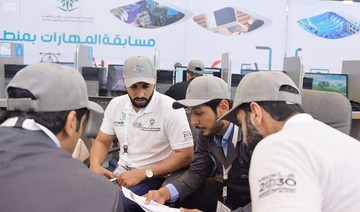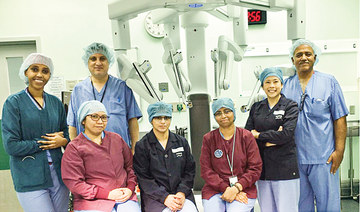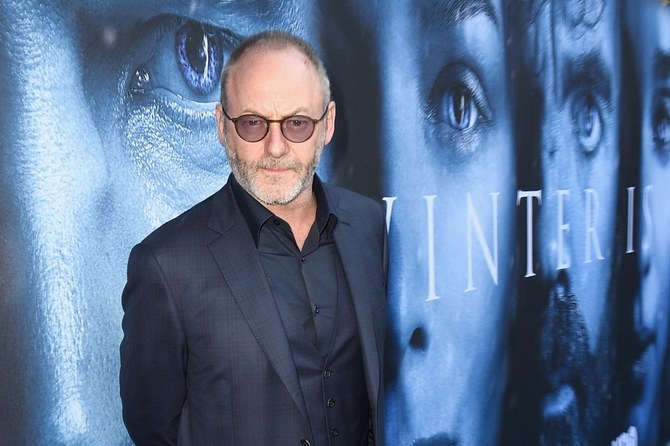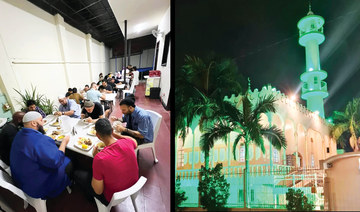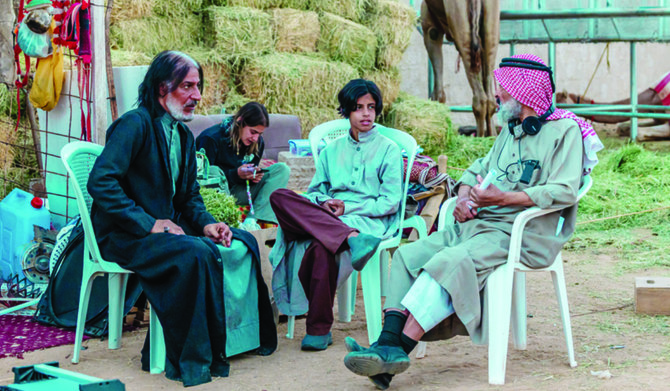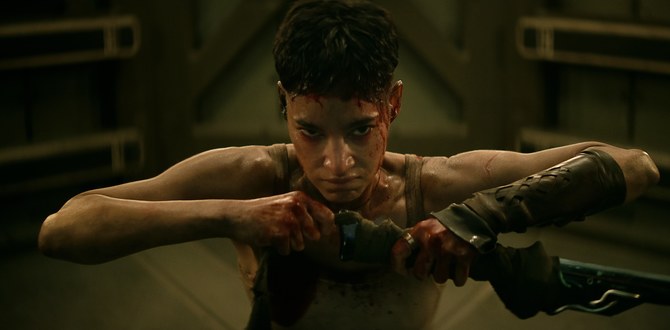DUBAI: When it comes to man versus machine, many industries, including medical science, are at a critical juncture.
Advancements in technology are creating a world where robots are performing tasks with speed and efficiency unmatched by their human counterparts.
Increasingly, robots are becoming a familiar presence in operating theaters, especially in the Gulf. Experts predict that the region could become the leader in the field of robotic surgery.
In June, Johns Hopkins Aramco Healthcare (JHAH) — the result of a joint venture between Saudi Aramco and Johns Hopkins Medicine — became the first hospital in the Kingdom to perform a robot-assisted hysterectomy.
“The new trend in hospitals that provide the most up-to-date medical services to their patients is to do surgical procedures using minimally invasive techniques,” Dr. Tareq Al-Tartir, a urologic oncologist and head of JHAH’s robotics program, told Arab News.
“Robotic surgery has revolutionized the way surgery is being conducted, and now many hospitals in Saudi Arabia have adopted this technique.”
Saudi surgeons are conducting increasingly complex procedures using the Da Vinci surgical system, said Al-Tartir.
The device features a set of three or four robotic arms remotely controlled by a human surgeon.
IN NUMBERS
- 2002 - The year robotic surgery was introduced. 2003 - The year a surgical robot was first brought to Saudi Arabia.
- 44 - Da Vinci surgical systems installed in the Middle East.
- 19 - Da Vinci surgical systems (pictured below) installed in Saudi Arabia.
- 930 - Documented robot-assisted procedures performed in Saudi Arabia in 2004-2010.
- 60% - Jump in robot-assisted procedures in 2011-2017.
Using the Da Vinci system, operations can be done with just a few incisions and the utmost precision, with less bleeding, faster healing and reduced risks of infection.
“At the beginning, robotic surgery was installed in a few institutes in the Middle East. The expertise needed to perform the procedures using the robotic machine developed with time. Currently, more institutes and more procedures are using the machine,” said Al-Tartir.
“The JHAH robotic surgery program is considered among the leading ones in the Middle East using this high-tech machine.”
In the JHAH case last month, Al-Tartir said, the “hands” of the Da Vinci surgical system used to perform the hysterectomy allowed a high degree of dexterity.
Thus surgeons had the ability to operate in very tight spaces, for example the pelvis, which would otherwise only be accessible through open surgery with long incisions.
During such surgery, the surgeon sits at a console and views the patient via high-definition 3D imagery, and manipulates the robotic arms through their own hands and wrists.
The system can be used on a range of minimally invasive surgeries, such as cardiac, urologic (including prostate, bladder and kidney cancers) and thoracic surgery.
JHAH has also carried out the first robot-assisted operations in the Kingdom to remove cancerous tumors.
Its doctors, based in Saudi Arabia’s Eastern Province, were also the first to perform bariatric surgery and treat gastroesophageal reflux using similar techniques.
Al-Tartir said thanks to the JHAH’s program and the willingness of the Saudi government to invest in medical care as part of its Vision 2030 reforms, the Kingdom is capable of putting the Gulf region on the map of robotic-assisted surgery.
“The ability of young surgeons to digest this new technology is a well-known fact, and the world trend now is to move into digital transformation. Medicine in general, and surgery in particular, is part of that trend,” he added.
“In the coming few years, robotic surgery will be the new gold standard in doing surgical procedures, and countries like Saudi Arabia, which invests a significant part of its income on the health of its citizens, can become a leader in this field.”
According to a study titled “The Development of Robotic Surgery in the Middle East,” led by King Saud University, robotic surgery started gaining a foothold in the region in 2003, about three years after Da Vinci became the first robotic surgery system approved by the US Food and Drug Administration for general laparoscopic surgery. Saudi Arabia was the earliest adopter of the technology in the Middle East.
The Kingdom already has 14 Da Vinci surgical systems, each coming with a price tag of more than $2 million, Al-Tartir said.
“Surgeons across all regions in Saudi Arabia are putting all their efforts into using this technique,” he added.
“The benefits include better magnification with better visualization, low risk of blood loss, lessened need for blood transfusions, less pain and scarring because of the use of small incisions to perform complex surgical procedures, reduced hospital stays and speedier recovery.”
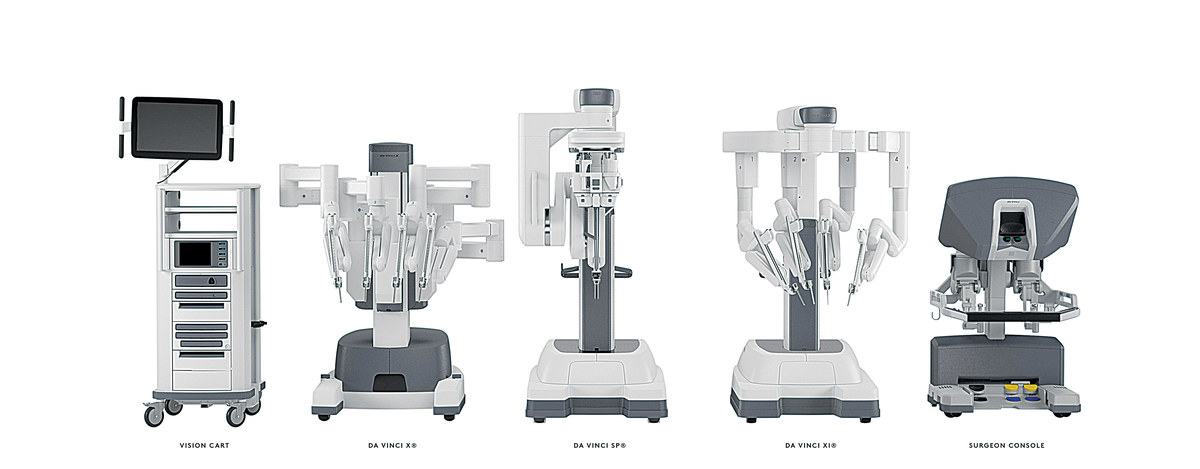
While Da Vinci surgery, developed by the US company Intuitive Surgical, is considered a medical leader, many big tech companies are developing their own autonomous systems.
CMR Surgical, a British medical device company, is rolling out its offering “Versius” which, like other surgical robots, performs laparoscopic surgeries.
Surgical robotics are “a key enabler for increasing access to minimal access surgery and keyhole surgery,” Dr. Mark Slack, chief medical officer at CMR Surgical, told Arab News.
But despite its numerous proven benefits over open surgery, this technique is utilized in less than half of all procedures worldwide.
“This means many thousands of people each year are more likely to be subjected to the disadvantages of open surgery, including increased pain, surgical site infections and a range of surgical complications. This also creates a burden of long stays in hospital and significantly longer recovery times,” Slack said.
The scope for countries willing to invest in the robotic medical field is endless. But though the march of technology may be relentless, surgeons need not worry about robots taking their jobs.
“Surgical robotics, including Versius, have been designed to be a tool to be used by surgeons, and therefore the relationship between surgeon and patient doesn’t change,” Slack added.
Dr. Rakesh Suri, CEO of the Cleveland Clinic Abu Dhabi (CCAD) and head of its robotic cardiac surgery program, said a common misconception is that robotic surgery does not involve the surgeon.
“In fact, the robot acts as an extension of the surgeon, enabling us to perform operations in a way that simply wouldn’t be possible with human hands. The robot allows us to manipulate surgical tools with unparalleled precision,” he told Arab News.
“Robotic surgery is of most benefit in densely packed and awkward areas of the body that present significant risks through traditional approaches,” he said.
“Because it’s minimally invasive and the robotic arms are so precise, we can access specific sites with minimal damage to the surrounding area,” he added.
“This helps patients recover significantly faster with fewer complications, improving outcomes and costs for health systems as a whole.”
Currently, robotically assisted procedures are most commonly used in urological procedures, said Slack.
But forecasts predict strong expansion across gynaecology, general surgery and upper gastrointestinal surgery, meaning many now-common surgical procedures could soon become obsolete.
Suri said robotics play a key role in dealing with some of the leading health care challenges in the Middle East.
“As we deal with rising rates of cardiovascular disease, obesity and cancer, robotic surgery will only become more important in offering patients the best possible outcomes, and eliminate the need for patients to travel abroad for treatment,” he added.
“To meet that challenge head on, it’s vital that the Middle East is able to build on its potential to become a leader in the field of robotic surgery globally.”




